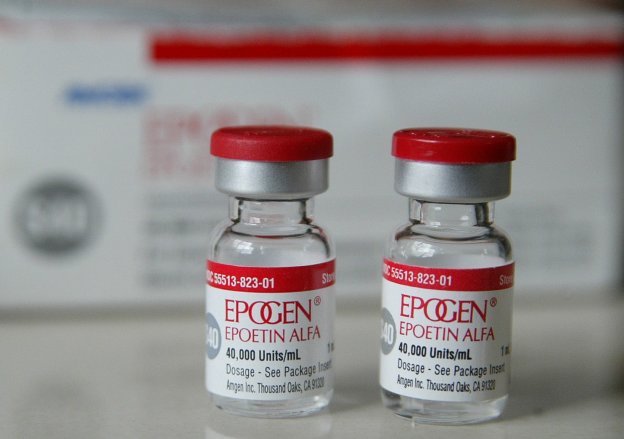The new anti-doping test could detect EPO micro-dosing after 48 hours according to French scientists.
Athletes have never stopped injecting recombinant erythropoietin (rEPO) to enhance their performance in spite of efforts by anti-doping agencies to deter its use. The use of EPO remains widespread in large part because athletes can get away with it.
The athletes have stayed a step ahead of the anti-dopers in the never-ending cat-and-mouse game. The EPO doping strategy of “micro-dosing” has mostly allowed athletes to avoid detection. But the anti-dopers believe they are close to putting an end to this pracctice.
The breakthrough in EPO detection will force athletes to stop using EPO — or adapt.
Michael Audran, the director of the Laboratory of the Agence Française de lutte contre le Dopage (AFDL) in Châtenay-Malabry, announced the breakthrough at a recent AFDL meeting this summer.
The new EPO test has reportedly increased the detection window from a maximum of 24 hours to over 48 hours. For example, a 60-kilogram rider who injected 600 IU would fail a drug tested performed on blood sample collected 48 hours following the micro-dodsing injection.
Athletes have eluded previous attempts, such as the Athlete Biological Passport (ABP), to detect doping by using a combination of blood transfusions and micro-dosing of rEPO. Cyclists, for example, has undergone blood transfusions for a short period of two weeks and have maintained the benefits with micro-doses of EPO every 48 hours.
“It is important [for cheating athletes] to spend 24 to 48 hours [avoiding] detection, because in these protocols, it is estimated that cheaters make microdoses every two days,” Audran explained. “We can detect microdoses EPO a minimum of 48 hours after taking, while it is now difficult to arrive at 24 hours.”
The longer detection-window effectively thwarts the strategy of micro-dosing EPO every 48 hours.
The new EPO test has yet to be fully validated by the World Anti-Doping Agency (WADA). But the Châtenay-Malabry laboratory is confident that it will meet WADA’s approval. The researchers expect the new EPO test to be implement as early as 2020.

